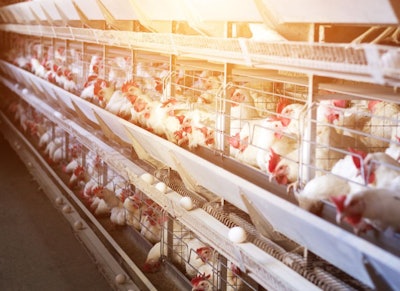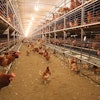
Egg producers and companies are continuing to make progress on their commitments to produce eggs cage free or to source them from cage-free farms, according to the fifth annual EggTrack report, which tracks commitments to cage-free egg production, compiled by animal welfare charity Compassion in World Farming (CIWF).
According to the 2021 report, 71% of the tracked companies are reporting progress in their cage-free commitments, up from 63% in 2020. Of the 47 companies with global commitments, 55% reported progress and, since 2020, an additional 12 companies have expanded their commitments to cover their entire global egg supply.
CIWF says a growing number of producers are turning to cage-free production as confidence grows that demand will last for cage-free eggs. As an example, it points to Italy’s Eurovovo Group, which has committed to phasing out cages for laying hens across its farms in Italy, as well as combination systems.
Global change
It is not only in in Europe and the U.S. where cage-free egg production is being increasingly adopted; changes are also occurring in Asia and South America, CIWF notes.
A number of international egg-producing, food and hotel and catering businesses have cage-free commitments that cover Asia, while in South America, the region’s largest egg company, Mantiqueira, committed at the end of 2020 to halve the construction of new facilities with cages.
However, not all countries are moving away from use of cages, and their use in some emerging markets, including India, Indonesia and South Africa, is increasing.
Eggs as ingredients
While change in shell egg production is evident, this is not so much the case where eggs are used as ingredients. Nevertheless, change is occurring.
CIWF notes that, in the U.K., retailers Tesco, Sainsbury’s, Ada and Morrisons all now have cage-free commitments for eggs used as ingredients, as do many other retailers and foodservice companies.
Food manufacturers, however, are not necessarily moving at the same speed as retailers. CIWF points to the U.K.’s prepared food company Bakkavor and the U.S.’s baked goods producer Dawn Foods as not having any public commitment to cage-free egg sourcing. It goes on to note, however, that Irish food company Greencore has recently committed to sourcing 100% cage-free eggs by 2025.
Dr. Tracy Jones, CIWF’s global director of food business, commenting on this year’s report said: “Despite the global pandemic continuing to deliver uncertainty and obstacles, for the entire food sector, many companies have persisted with their efforts to go cage free.”
She continued: “The landmark decision to by the European Commission to phase out cages for all farm animals across the content by 2027 has set the tone for cage-free egg production across the globe and we are already witnessing a rise in global commitments as corporate cage-free sign-ups ripple out to other regions.”


















